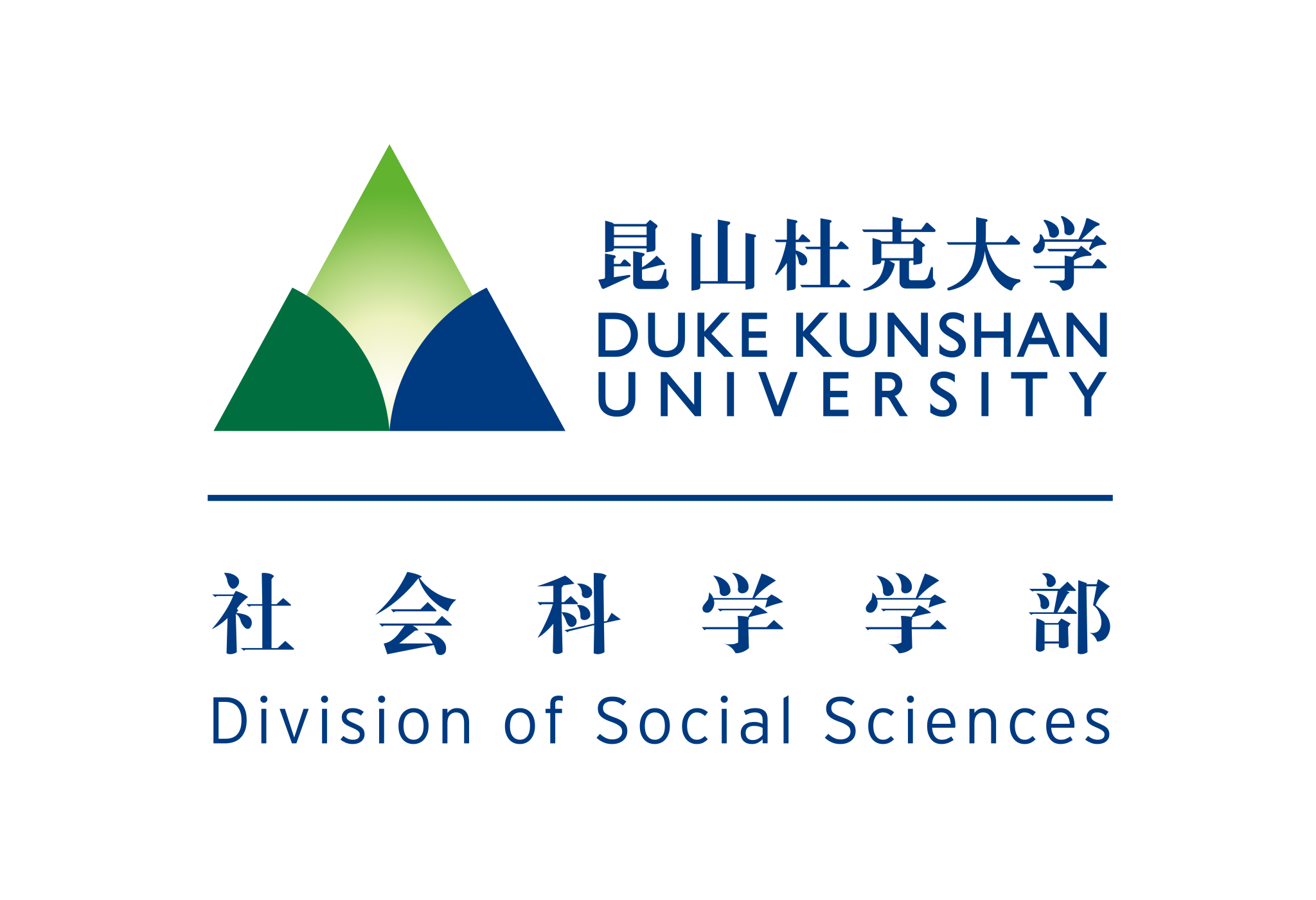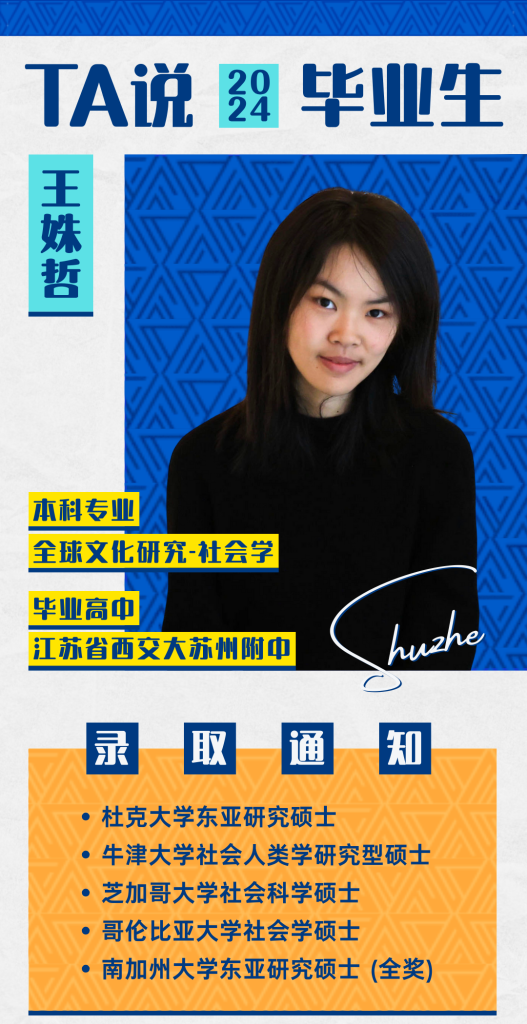
01 Why DKU?
When I was in high school, I always liked to use the process of elimination when doing questions, and the same is true for my future life planning. I only knew what I didn’t want and couldn’t choose, but I was confused about what I wanted. After learning about the liberal arts education model practiced by DKU, I believe that the tolerant exploration space here can allow me to discover my inner calling, find the answer, and make a direct choice instead of relying on elimination.
02 Story About My Major & Me
After taking the course Introduction to Social Sciences in the first semester of my freshman year, I realized that I was more interested in the perspective of social sciences on society than in the humanities and arts. After taking the course Contemporary Social Issues by Assistant Professor of Sociology Hyun Jeong Ha in the first semester of my sophomore year, I further clarified my interest in sociology and anthropology. Their disciplinary methods of directly communicating with “people” and their theories of asking “why” behind social appearances can satisfy my curiosity and provide ideological support for my personal powerlessness and anger when facing huge structural oppression. Questioning the accustomed, exposing lies, and breaking the binary disciplinary thinking fascinates me and empowers me.
At the same time, the relationship between Professors and students in our major is relatively close, and there is more interaction between students in the same major. I have benefited a lot from the collision of our thoughts, and it gives me a precious sense of belonging. Even though I have graduated now, I still feel that we who care about society are moving forward side by side and will meet again in the future.
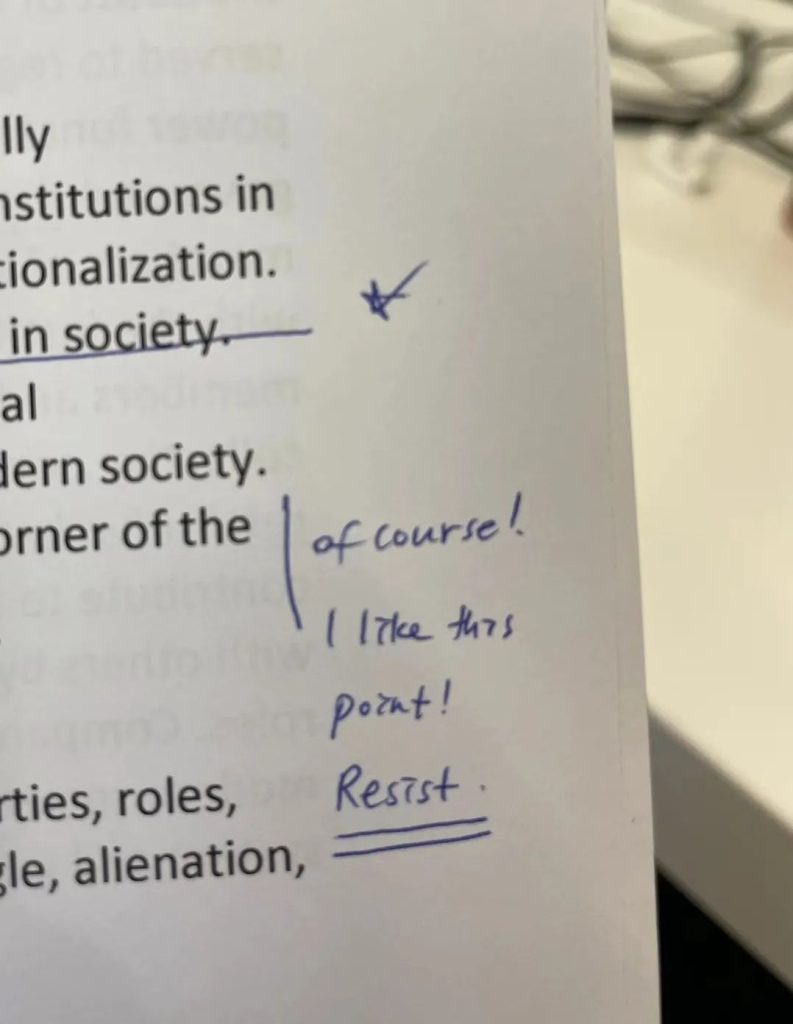
Prof. Ha’s comment on the assignment
03 Plans After Graduation
My short-term plan is to study social anthropology at Oxford University and continue to explore my interests in gender studies, multi-species ethnography, science and technology studies, and medical anthropology. I hope to further clarify my academic interests and expand more possible paths in life in the next two years.
04 Significant Research Practice
My Signature Work was my first independent research project, which allowed me to experience the joy and hardship of formulating research questions and finally writing a paper. The main question I studied was how Chinese female readers of Korean Danmei comics view the representation of heterosexual hegemony in comics, and how readers’ responses reproduce or challenge heterosexual hegemony. I initially wanted to study this question because I was curious about the diverse experiences of modern Chinese young women when reading comics and their gender perspectives, so as to gain a glimpse into the gender dynamics of modern Chinese society. I also saw this research as an opportunity to practice qualitative methods and completed 20 online and offline interviews through the Summer Scholar Research Program of Assistant Professor of Sociology Megan Rogers. Under the guidance of my thesis advisor Professor Hyun Jeong Ha, I found that the gender concepts of comic readers were complex and contradictory: on the one hand, they longed for Korean Danmei comics to break through the barriers of gender binary; on the other hand, they showed nostalgia and incomplete criticism of heterosexual hegemony representations.
It is exciting to transform problems observed in life into research topics, but my enthusiasm must also be tested by the practical difficulties encountered in research. For example, during the interview, I was rejected by the interviewee because I was regarded as a “scammer” who audited the Internet space, and I was “dumped” many times by the interviewee who made an appointment but did not show up. I was also distressed by the time rush and the lack of in-depth understanding of the theory to be used, and I was frustrated that the final research did not reach the level I imagined. But I also learned a lot from these unsatisfactory aspects: I exercised the necessary agility and communication skills of qualitative interview researchers and realized that I should do more literature and theoretical accumulation before conducting research next time.
More importantly, this experience has to some extent broken my excessive pursuit of perfectionism. Before, I was always reluctant to show my work to others when it was not perfect, but this time after writing the first draft, I encouraged myself to attend some meetings and received a lot of sincere advice and encouragement from Professors and classmates. Facing my shortcomings calmly and seeing them as room for improvement is my reconciliation with myself, and it also helps me to make academic progress. At the same time, I would like to thank my Mentor Professor Hyun Jeong Ha again. I was deeply impressed by her sense of justice, and I benefited a lot from her rigorous academic style.
05 Colorful Transcultural Experience
Due to my interest in the intersection of gender and environmental humanities, I took a course called Climate, Culture & Identity during my semester at Duke University in the United States, taught by Professor Saskia Cornes. This course mainly explores the limits of humans in the environment in the context of the Anthropocene, and the role of feminism and queer theory in understanding climate change and corresponding technological science. In this class, we have to make videos related to the course theme in groups. I teamed up with two other American students from Duke and chose Queer Ecology as the theme of creation. Queer ecology juxtaposes nature and gender theory, challenging and denying the inherent gender binary understanding of nature and the relationship between humans and nature. We interviewed people from different backgrounds about their understanding of “nature” in their own culture, as well as their ideas about “queer ecology”. In the end, the three of us worked together to complete the collection, editing and dubbing of video materials.
This experience was a brand-new experience for me: it was my first time making a video, and also the first time I worked in a group in an unfamiliar cultural environment. As the only Chinese student in the class, I felt different because of my identity at the beginning of the semester, and I was not very active in speaking in class. But in the cooperation of the three-person group, I felt that my Chinese cultural perspective was fully respected, and I was able to integrate into everyone while generously showing my differences. The tolerance and care of my two teammates made me confident, and then I found a more comfortable way to participate in class. Through this experience, I found that the charm of cross-cultural communication lies in discovering differences and having the freedom to maintain differences and finding self-consistency in the process of adapting to a new identity.
In addition to in-class learning, Professor Saskia also moved the class outdoors, and we sometimes took classes at Duke Farm. I experienced weeding, composting, getting to know different mushrooms, and learning to judge the year by different soil. Direct contact with crops and farmland prompted me to think about the relationship between humans and other species, and also allowed me to put aside my computer and homework and get a rare relaxation. Every time I went to and from the farm, my teammate Emily would enthusiastically pick me up and drop me off without a car. In just half an hour’s drive, we talked about everything from complaining about the cafeteria to pigeons in New York, and then recommended each other’s favorite courses. I am grateful for this class and the people I met through it, which allowed me to travel through more of Duke’s streets and woods and make more colorful memories across the ocean.
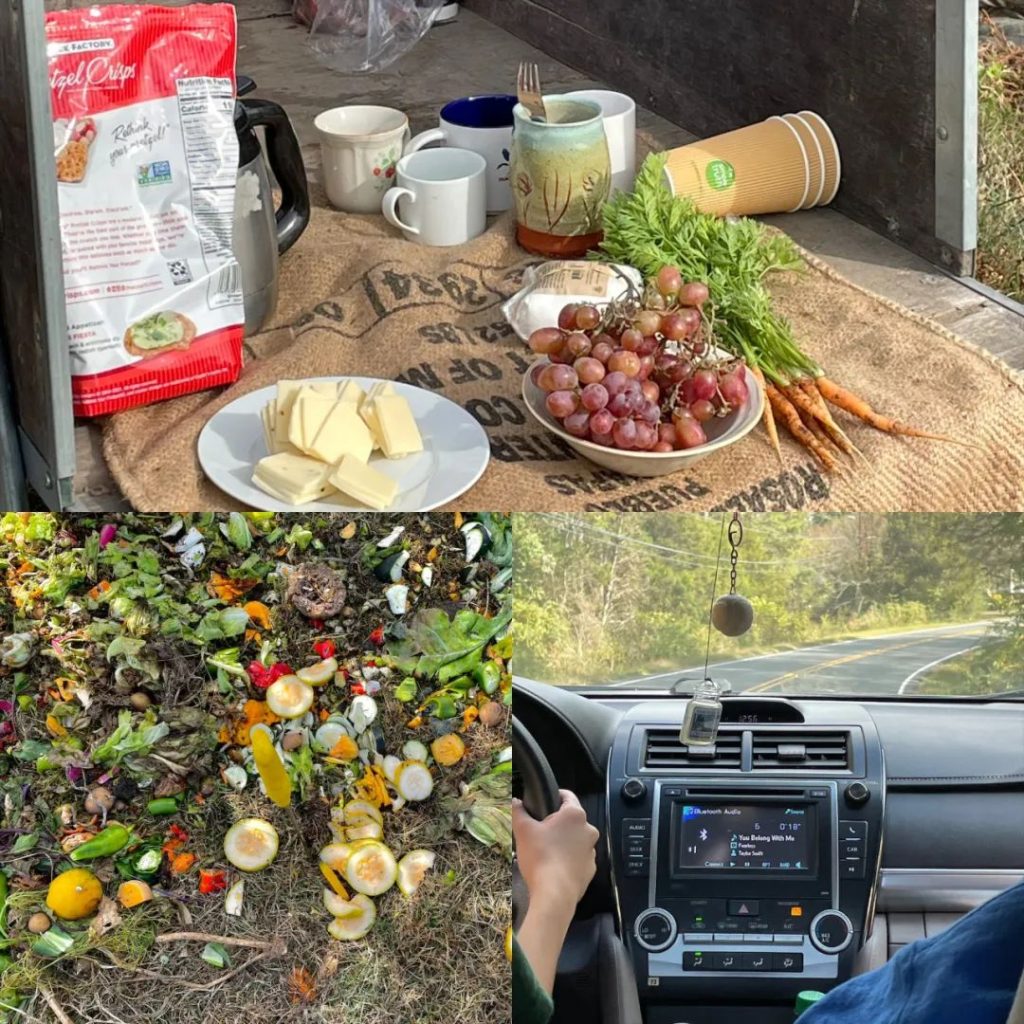
Top: The food Professor prepared for us on the farm
Lower left: Composting; Lower right: Return trip with teammate Emily
06 Why Love DKU?
DKU is a loving place. I have established a perfect support system here. Whether I want to share joy, confide anxiety, or seek help, I can always find the right person.
Robin Rodd, associate Professor of Anthropology, is a very important Professor to me. He is humble and sincere, and generously gives me advice on future planning and academics. When choosing a graduate program, he listened to my endless worries and answered them one by one. He also went through the project outline with me and discussed my inclinations. At the same time, Professor Robin encouraged me to explore freely in the areas of interest. In the self-study project with the theme of Bio-culturalism, I read extensively academic discussions on human and nature and sustainable development in the fields of philosophy, anthropology, and political ecology under the guidance of Professor Robin. The difficult ideas in the literature will become clear in our weekly discussions, and the confusion of “not knowing” and “not understanding” has become a compass for the progress of the project. Professor Robin’s guidance also helped me gradually see where my passion lies and regain the confidence to conduct research independently. When the weather is good, we will meet under the shade of the trees outside the academic building. I think I will always remember the thoughts that sprouted in the spring breeze, sunshine, and birdsong.
At the same time, I have received a lot of help from many school staff in the past four years. Haoyuan from the Undergraduate Guidance Office was my supervisor for two years as a peer mentor. In student work, I learned communication skills and leadership from her; in life, she is my friend and listener. In communicating with her, my thoughts and concerns can always be well understood, and I will have more courage for the future. Haoyuan’s gentleness and firmness made me feel the power of a passionate educator.
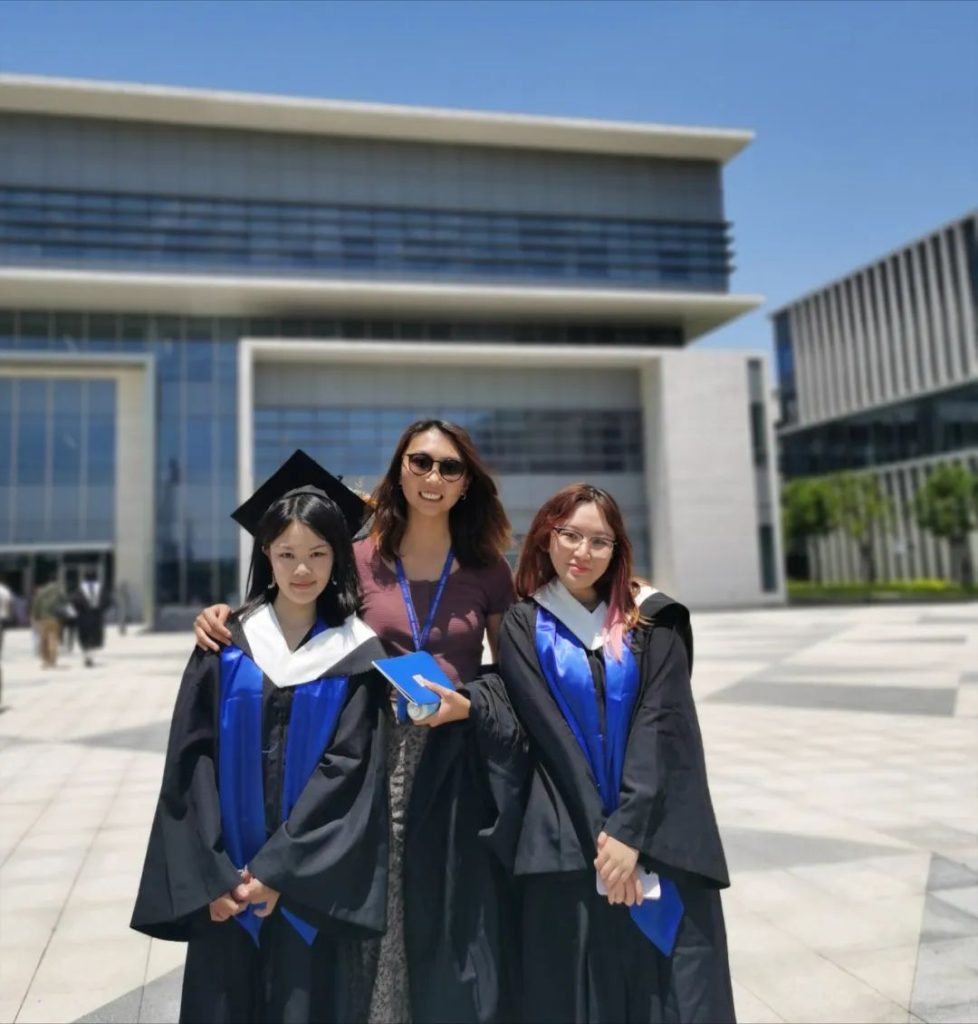
Photo with my friends
07 Suggestion to fellow students
Sometimes I envy those around me who have clearer goals and faster pace than me, but I also know that I have my own pace. My current self is the result of my past self’s careful shaping, so I believe that there is no waste and failure in exploration.
At the same time, facing an uncertain future, I think it is important to have a fluid and resilient core. Disenchant the single template of success, maintain your own independent thinking, and I wish we can all find the island in the sea where we dream of living.
Translated and Edited by Zhenyu Tian, Class of 2027
